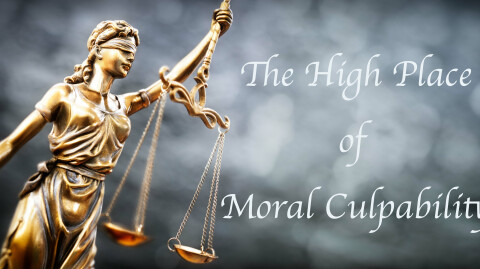You've probably heard it said that there are no bad questions. Well... that's not exactly true. There are bad questions, and one of them is, "What is a good catechism?" Actually, it is not as much of a bad question as it is an inadequate, incomplete one. Asking "what is a good catechism" is a bit like asking "what is a good bait?" Every good fisherman knows that a bait is only as good as its ability to attract the fish we're pursuing. In the same way, a catechism is only as 'good' as the confession we are seeking to teach.
Catechism and Confession
Catechisms are designed to teach and support confessions. The clearest example is the relationship between the Westminster Confession of Faith and the Westminster Shorter (and Larger) Catechism. If you are a Presbyterian attempting to teach your children (or a new convert) the ins and outs of the Westminster Confession, then the Shorter Catechism is the perfect "bait". However, if you're a Baptist, you may want to keep fishin'.
Hence, the first problem I usually run into when trying to answer that all-too-familiar question, "What is a 'good' catechism" is trying to get people to answer my inevitable next question, "What is your confession of faith?" At this point, I'm usually met with that confronted with that 'calf staring at a new gate' look. Unfortunately, most people are part of churches that either 1) don't have a confession of faith (other than the ten things they list on the "What We Believe" tab of the website), 2) don't hold to the confession of faith they claim (i.e., Presbyterian churches who list the WCF on their official documents, but have fallen into Liberalism, Arminianism, or Pragmatism), or 3) have a confession that is not supported by a catechism (like my SBC "Baptist Faith and Message" friends).
In either case, this poses a problem. Do we just choose a catechism and start memorizing? or should we find a confession, then move to the supporting catechism? or maybe we should just find the nearest church that holds to a Confession that is supported by a catechism. See what I mean? This is an absolute mess! But there is hope.
Where To Begin?
Start with the leaders of your local church. Ask them to what, if any, Confession of Faith your church holds. If it is a "made up" confession (i.e., we just searched the internet for one that was concise enough to put on our website), ask them if there is a broader confession of faith that would be affirmed by your church and/or denomination (i.e., are we Westminster, Heidelberg, or Baptist Confession people?). If they don't know the difference, you should probably find another church... no... SERIOUSLY!
Once you've found a Confession, you're well on your way to finding a Catechism. THEN you can ask, "What's a good catechism?" Now you're a hunter who has identified his prey and it will be much easier to 'choose a weapon' (Yes, a hunting and fishing metaphor in the same article... did I say I'm a Texan?).
But know that this quest is not without peril. Many will discover that they are knee deep in churches that loathe Confessionalism. "No Creed But Christ" is their... well, Creed. Of course, one wonders how they separate themselves from Mormons, Jehovah's Witnesses, or Muslims, all of whom would claim to believe in Christ, if they have no Creed or Confession to define their Christology clearly, but I digress. The fact of the matter is, if you are anti-Confessional, you will also be anti-catechism. Ironically, there are a number of Christians out there who have rejected Confessionalism (or are simply ignorant in that regard), but looking for a "good catechism." Hopefully, this cognitive dissonance does not describe you.
VB



